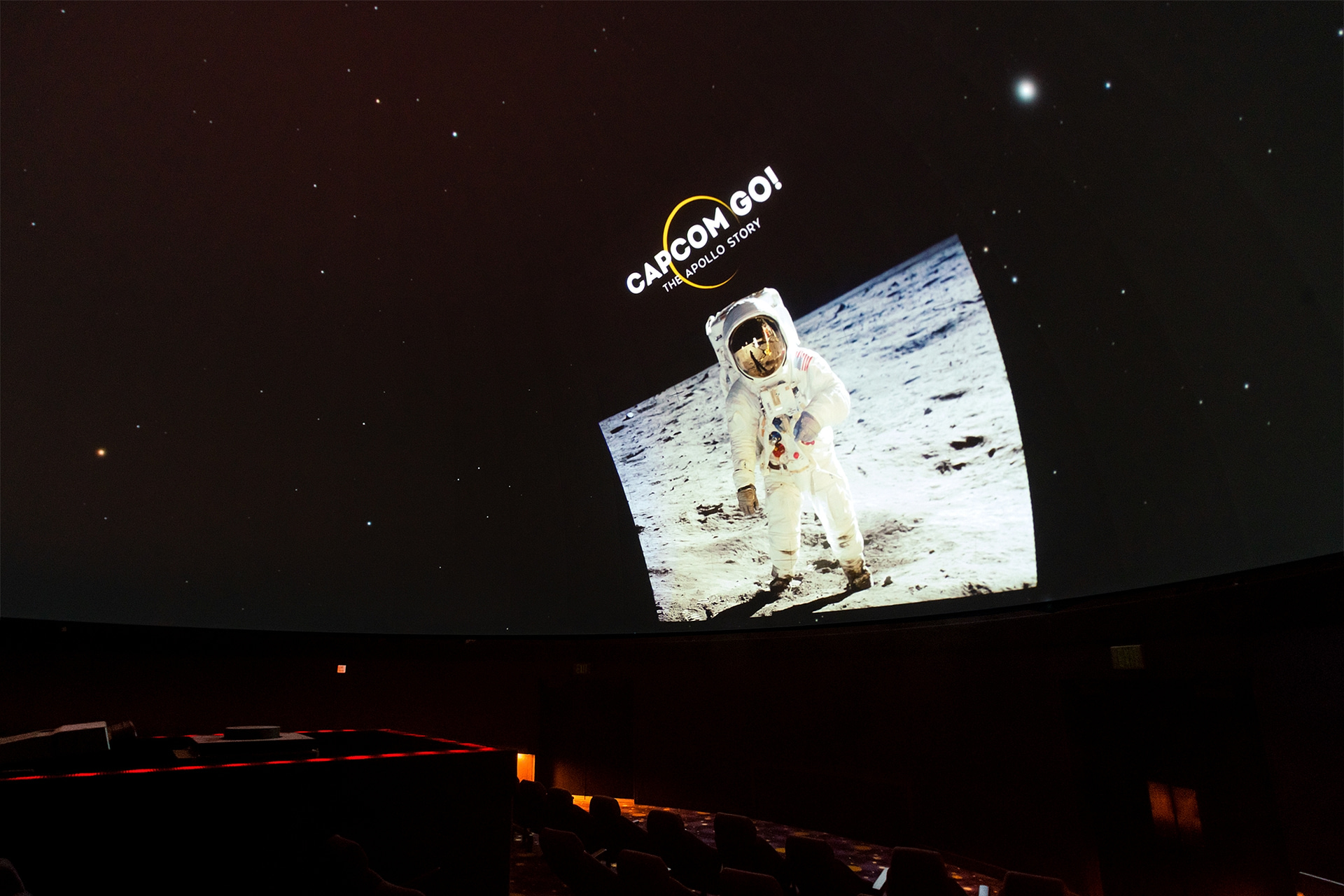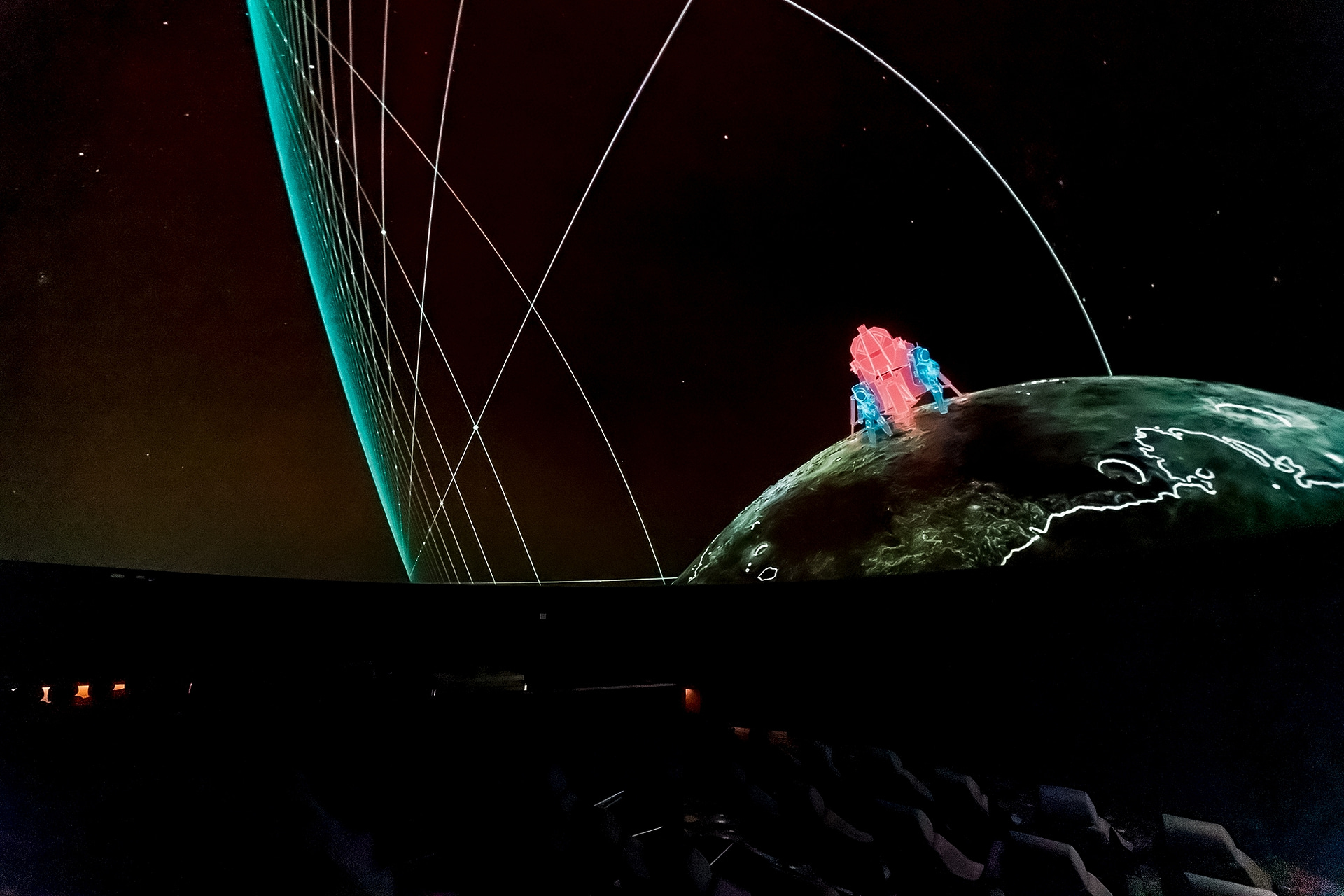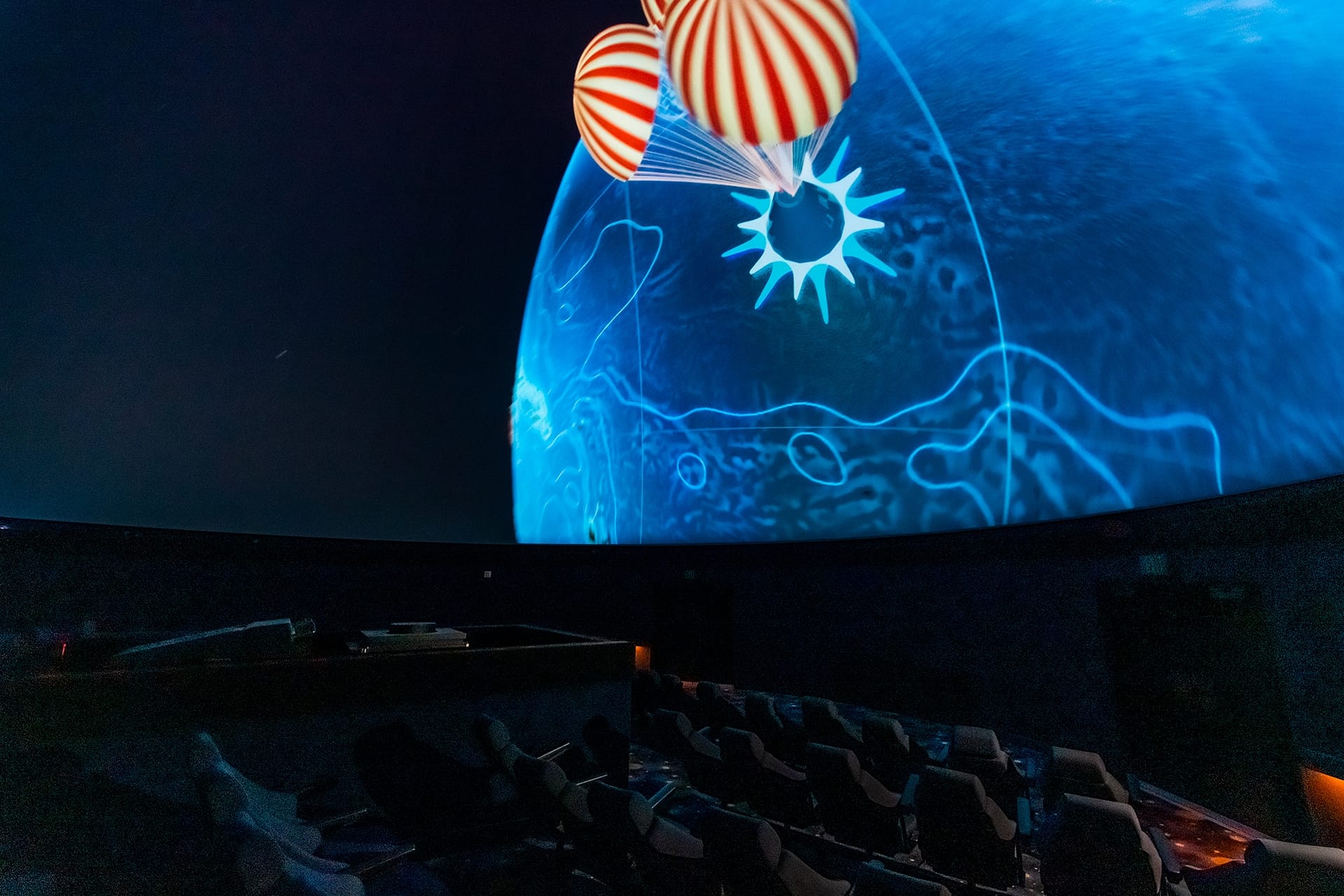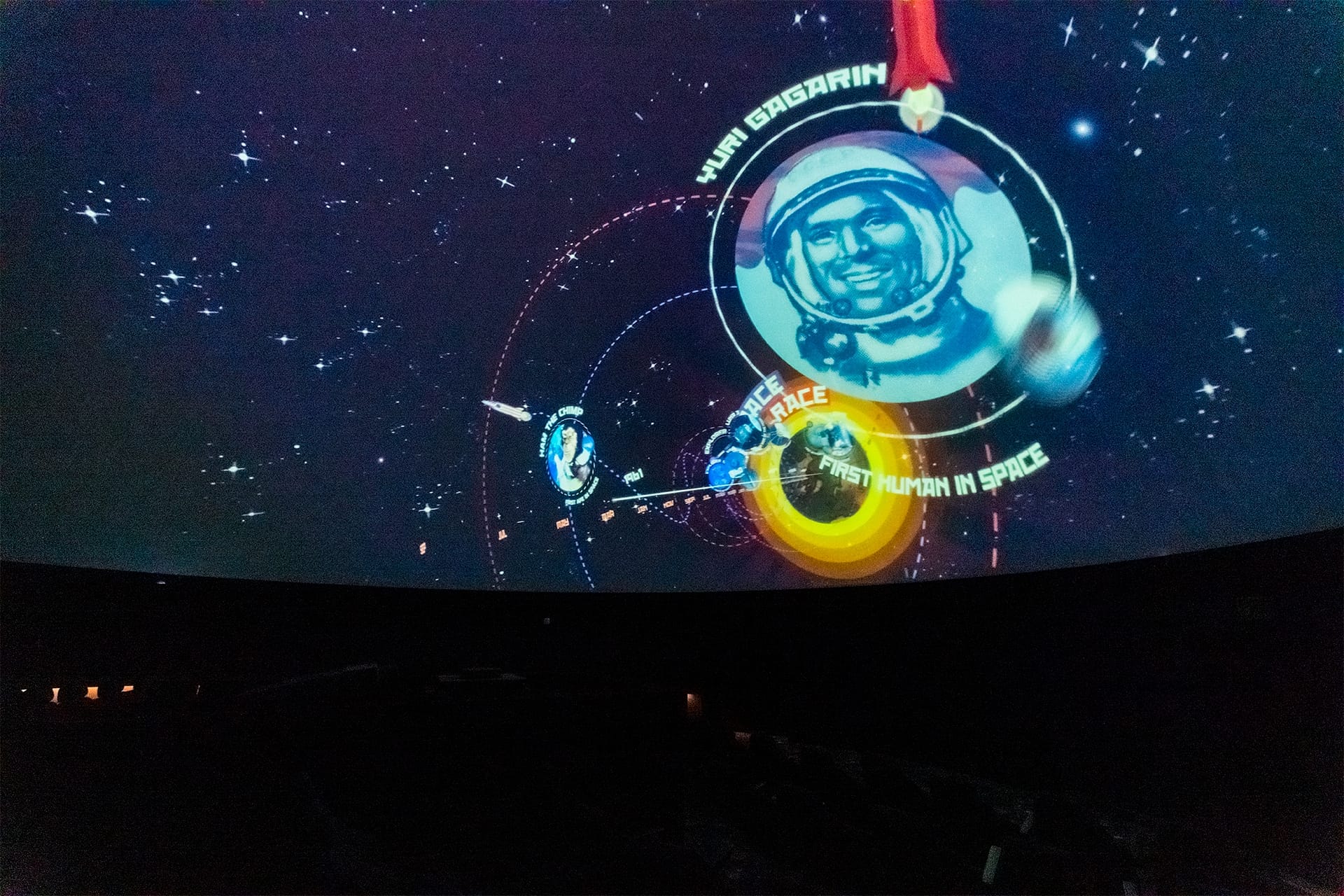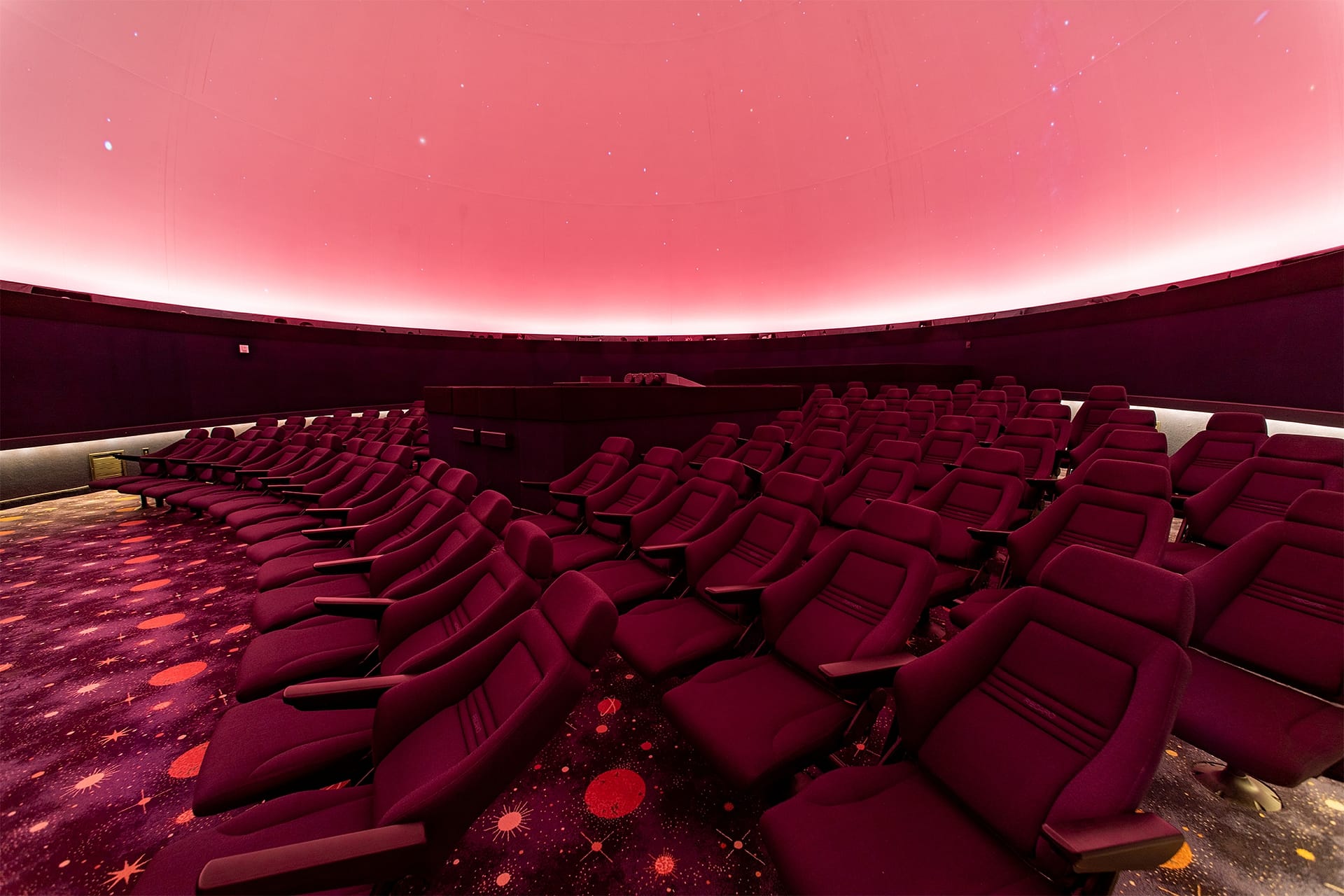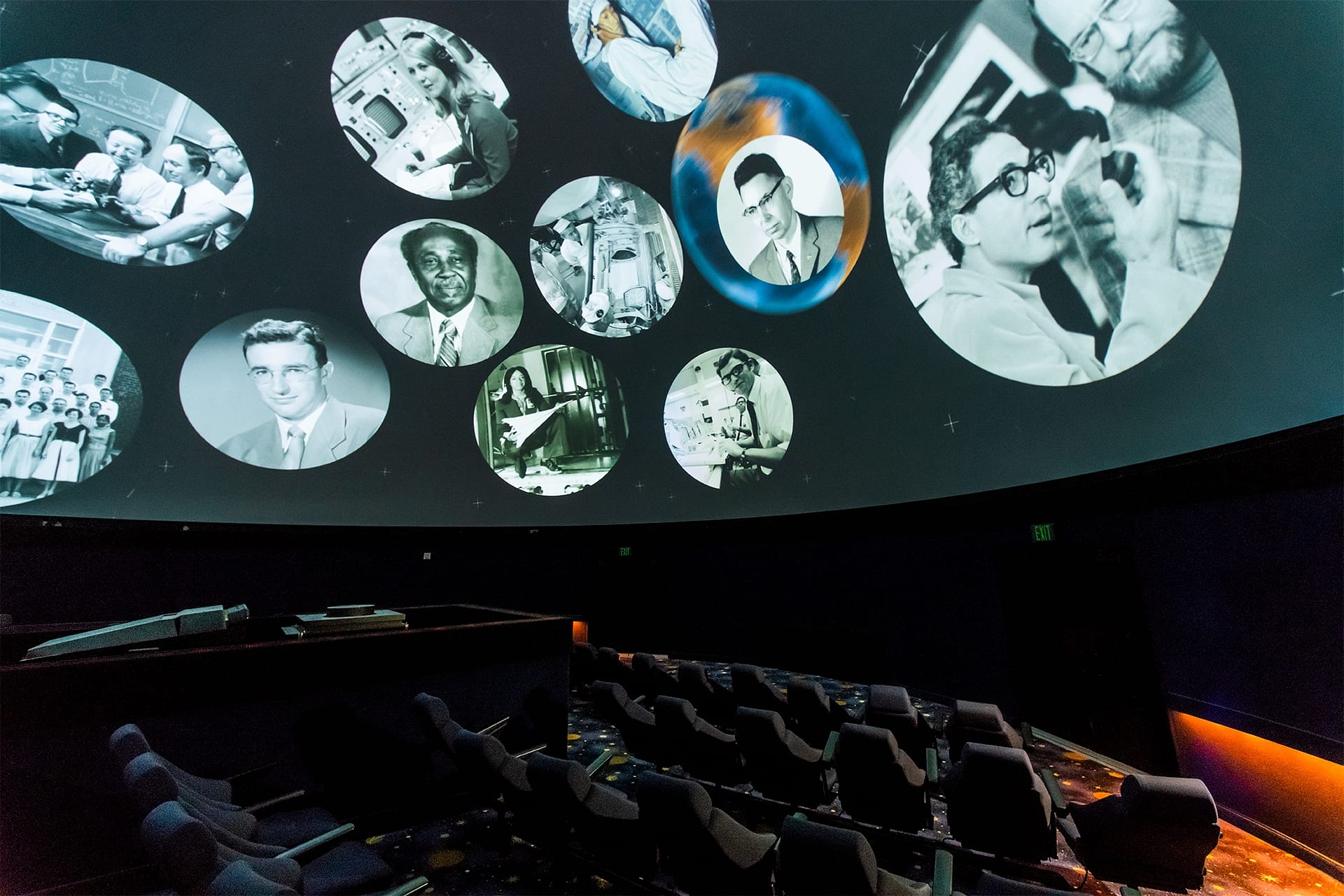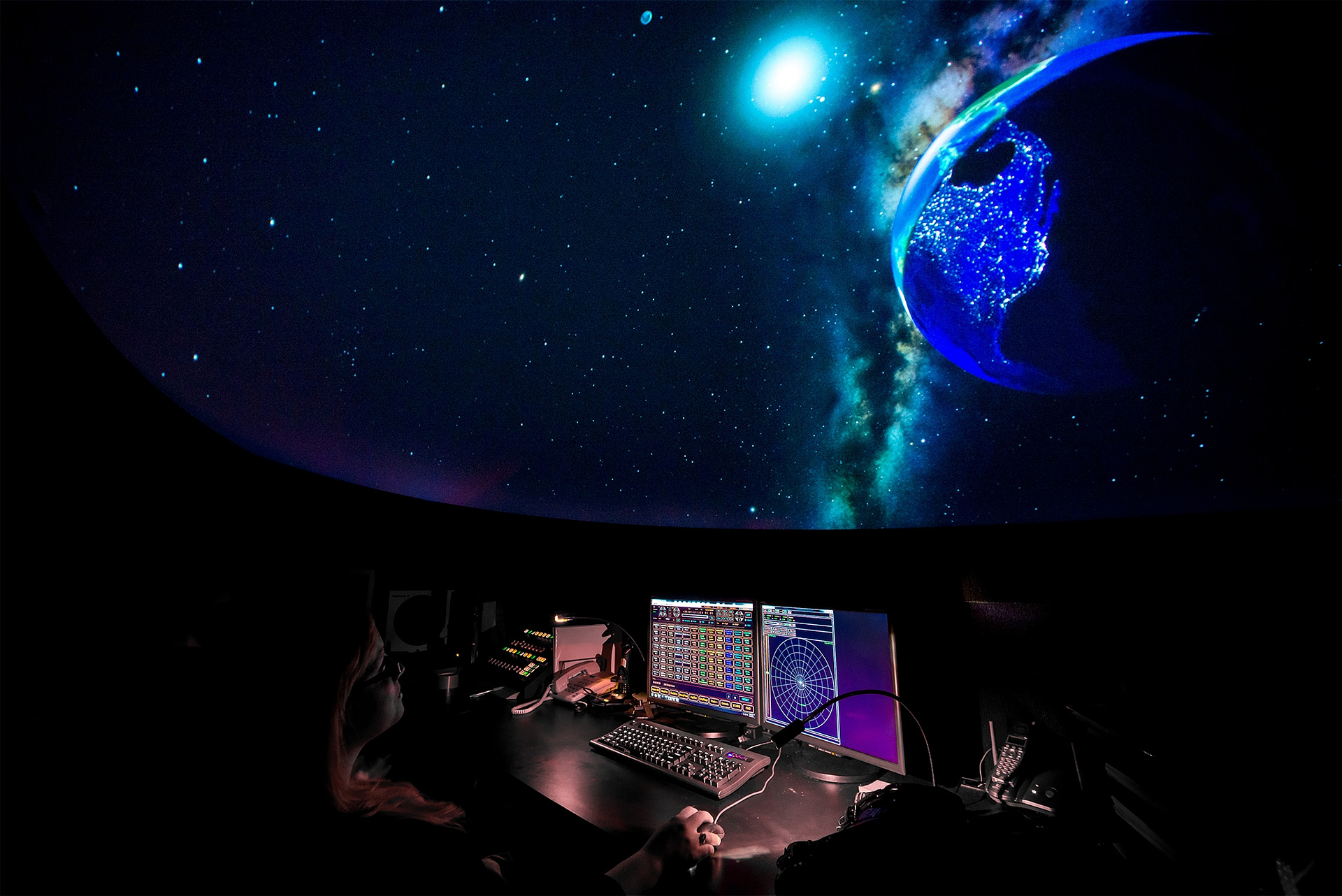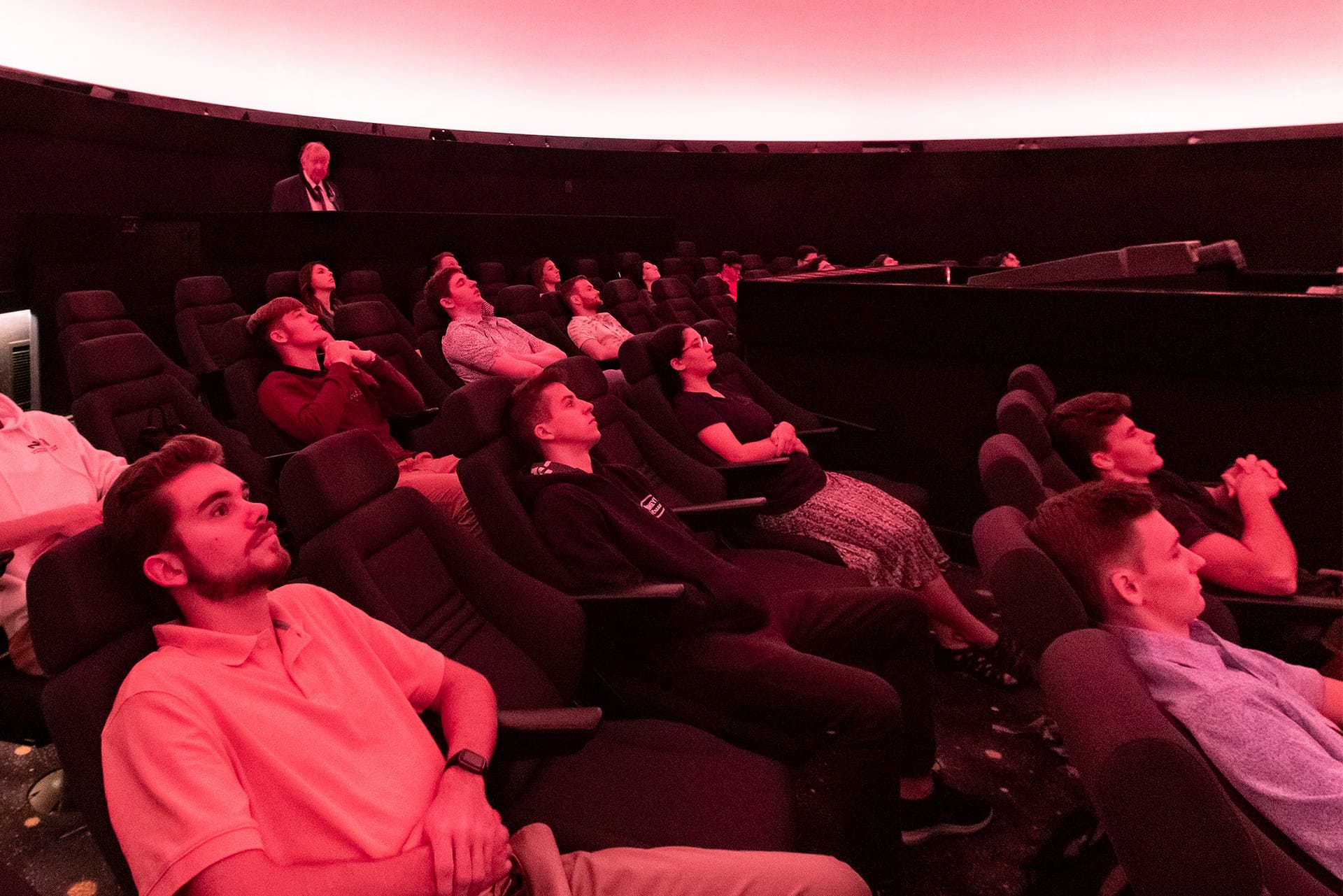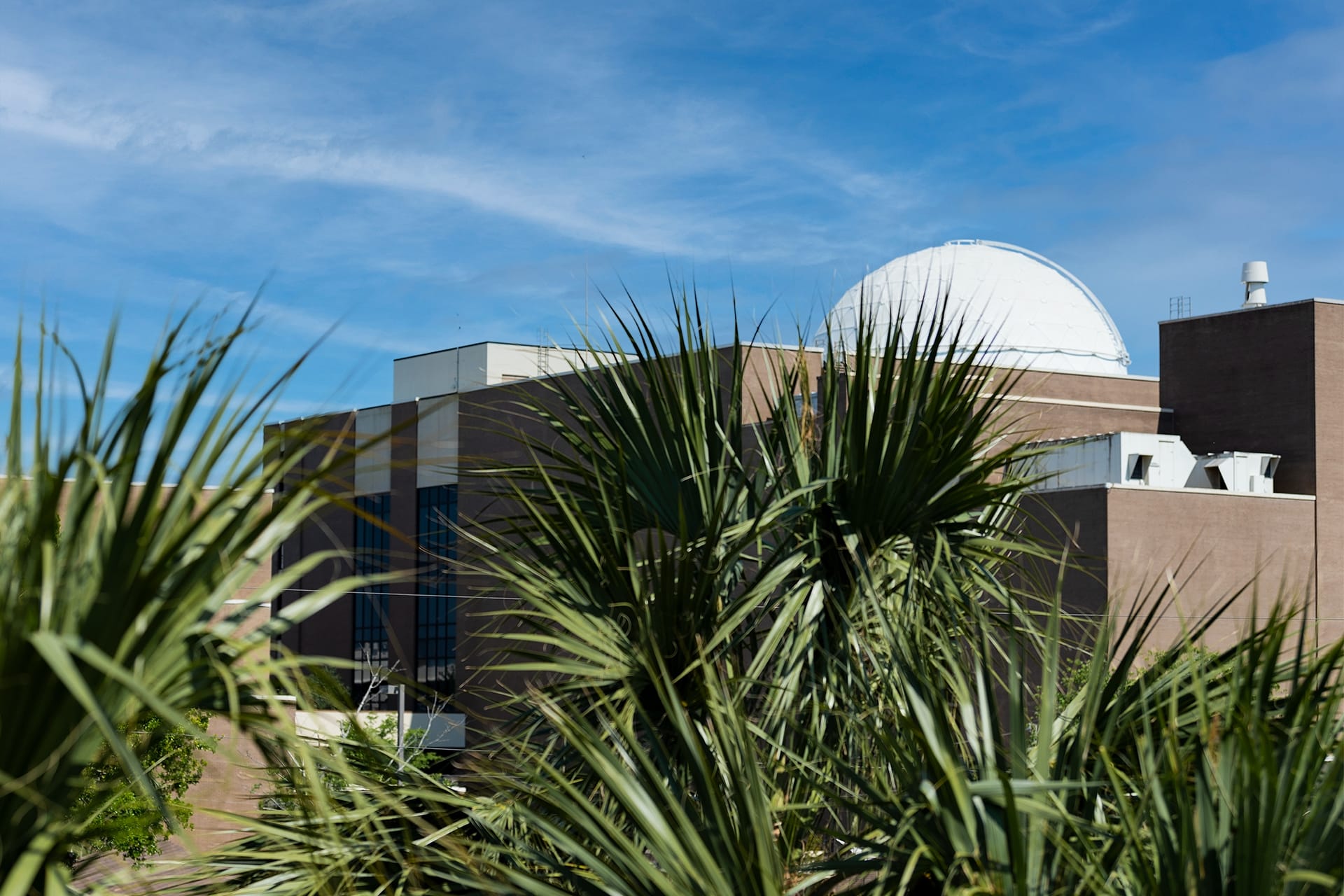When audiences make their way to the Pensacola Christian College Planetarium, they’re treated to a special sight on the MacKenzie Building’s sixth floor. Moons, stars, and other celestial elements sparkle across the carpet, while beautiful star charts adorn the wall. It might even feel as though the space journey has already begun before ever stepping foot inside the Planetarium itself.
When the Planetarium first opened in 2001, it boasted impressive credentials among planetariums at the time. Back then, many were usually equipped with auxiliary slide projectors paired with star projectors. While they could display constellations in either hemisphere, planets, the sun or moon, and other images, they offered a limited experience.
Since day one, the College’s Planetarium has been fully digital, allowing audiences to zoom past constellations and planets and appreciate unique views of God’s creation. Using a 3-dimensional graphics system, two bright video projectors live-render 4K images onto the 50-foot dome overhead. To immerse audiences further, the planetarium also features 11 clusters of speakers behind the dome, a subwoofer system, and over 20,000 watts of amplification to make up the 7.1 channel surround sound audio system.
Now, 20 years after its opening, the Planetarium currently presents five different shows with about a half hour run time each: The Heavens Declare (2001), Celestial Stained Glass (2003), Stair Steps to Space (2007), Exploring with the North Star (2009), and CAPCOM GO! The Apollo Story. The first four were written, designed, and produced in-house, including the programming, narration, and assembly. Two shows included completely custom music, also done on campus.

“It was our founders’ (Dr. Arlin and Beka Horton) desire to have a planetarium to show how God reveals Himself to us through His wonderful creations in the heavens,” said Video Production Director Greg Moses, who supervised the crew that worked on the first two in-house shows. “The idea was for the shows to emphasize the truth of Scripture—that ‘the heavens declare the glory of God.’ We also incorporated much history about how man has studied the stars and has built great systems to see into the skies and has even visited our nearest celestial neighbor, the moon, all the while illustrating that God created the universe and that His handiwork reveals His glory. It is ours to discover, marvel at, and enjoy, but ultimately to rejoice in His greatness.”
Leasing its newest show, PCC has been offering NASA’s CAPCOM GO! The Apollo Story since 2019—the 50th anniversary of the moon landing. In this immersive historical documentary, audiences learn of the seventeen Apollo missions and the efforts behind putting mankind on the moon.
Apart from the shows, the Planetarium is used weekly in Introduction to Astronomy (SC 141). Arnie Nelson, who has nearly 50 years of astronomy experience and a master’s in planetarium education, teaches the class. Before coming to PCC, he was planetarium director for two Wisconsin public school districts and at the University of Wisconsin in Lacrosse. Nelson worked on the scripts for the in-house produced shows with editing help and direction from the creative director, Beka Horton.
“The heavens declare the glory of God; and the firmament sheweth his handywork.”
Psalm 19:1

Using the Planetarium, Nelson has enjoyed helping students in Astronomy understand the workings of God’s created universe. “Many astronomers are specialists; they deal with one narrow area,” he explained. “But at planetariums, we have to look at things more general. It’s easy to see how weak the theory of evolution is when you study it and analyze and compare it. When you have to keep revising the theory, that’s because the theory was no good. And so, I think [planetariums] get a better look at the whole idea of God’s creation.”

As a student currently taking Astronomy, Stephanie Hansen (Sr., IN) is excited to learn how to identify constellations in the night sky. The class time in the Planetarium has helped her to understand additional concepts. “The Planetarium makes it easier to learn certain topics in astronomy,” she said. “I never completely understood the ecliptic (the sun’s path) and its relationship to seasons until Mr. Nelson gave us a visual example in the Planetarium.”

“Mr. Nelson is wonderful! His deep love for God and care for his students is evident every class period,” said Michael McIntyre (Jr., GA), another student taking the class. “It is a blessing to see God glorified in the explanation of His universe. Not having to filter through evolution while learning the material makes learning the content so much simpler.”
Anyone can share in appreciating God’s firmament. Arnie Nelson has been admiring the night sky since eighth grade, when his brothers gave him an astronomer’s book and star map lamp for Christmas. “Once I got started, it was that excitement of learning that I’ve been coasting on ever since,” he shared with a chuckle. “The stars I teach now, they’re the same stars I learned back then.”

